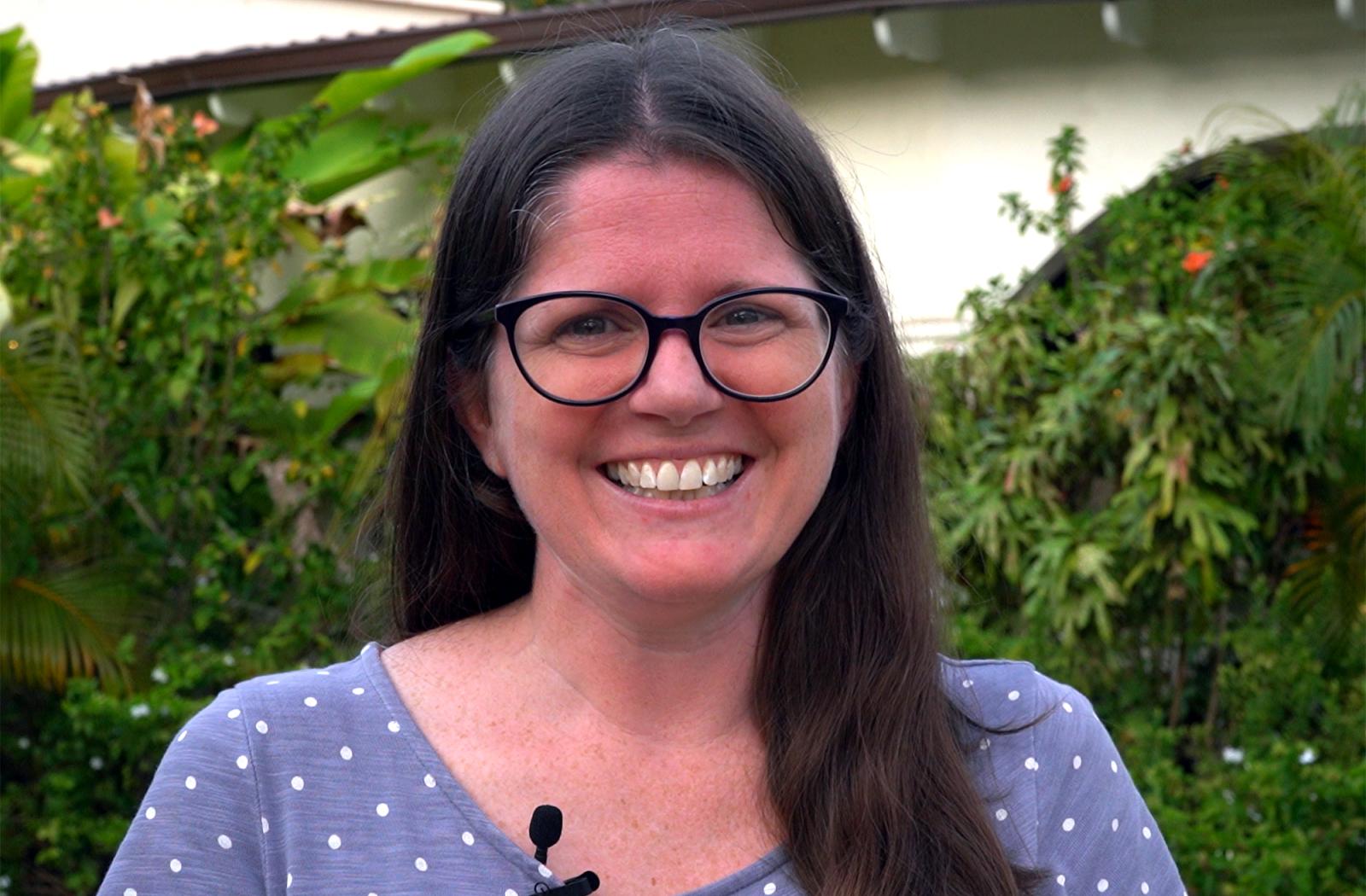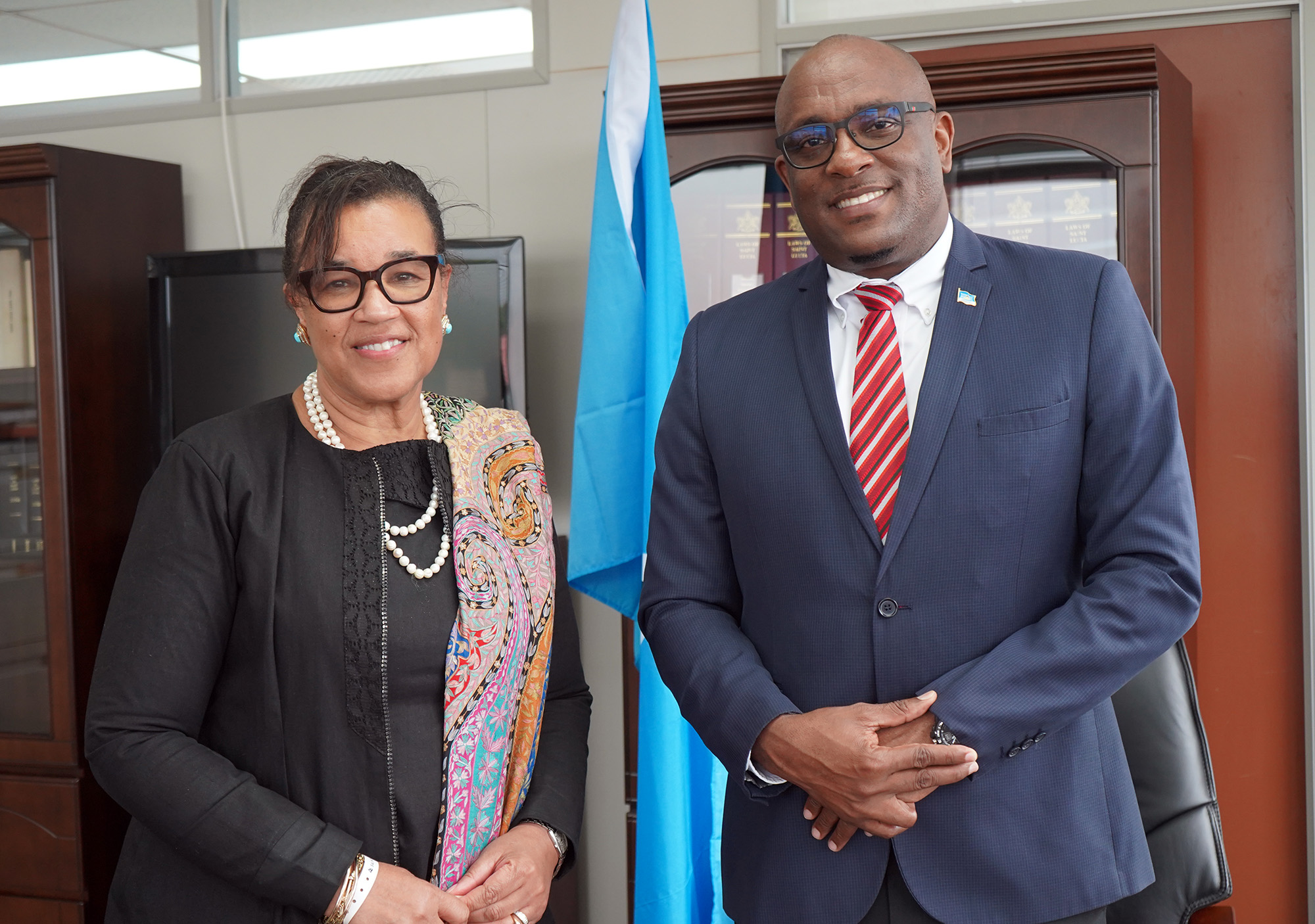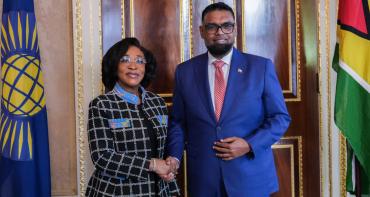Ask the Expert: Ruth Phillips Itty, Commonwealth National Climate Finance Adviser for Saint Lucia

Ruth Phillips Itty has spent more than a decade working with public, private and non-governmental organisations, as a climate change, environment and international development professional. She shares some insights from her experience as Commonwealth National Climate Finance Adviser for Saint Lucia, 2019-2023.
During this period, the Commonwealth Climate Finance Access Hub supported the Government of Saint Lucia to access international financing to the tune of US$7.1 million and worked with 41 government officials to build their capacity to tackle climate change.
- Many Commonwealth small states need financing at scale to implement climate action on the ground – but they face significant hurdles. Based on your experience, what challenges has Saint Lucia faced in accessing climate finance?
Saint Lucia is affected disproportionately by the impacts of climate change due to its small land area, geographical location, and small, open economy (population under 200,000). The country’s key sectors, such as agriculture and tourism, are highly vulnerable to climate-related hazards.
There is an urgent need for climate finance, but the country faces various challenges – institutional, human and technical capacity – in responding to requirements set by international climate funds.
For example, while there certainly is a high calibre of technical staff, key agencies lack dedicated personnel to lead the development of climate funding proposals. There is also no central team to coordinate across all funding opportunities.
Beyond the relevant departments and a few key officers, there is little familiarity with international climate finance and the complex processes and requirements to access it. In this regard, my role has been to help build capacity and provide technical support and advice.
- What about domestic sources of finance within the country – do they offer solutions?
Because Saint Lucia faces a high debt burden, there is limited fiscal space to access domestic financing. The Government therefore prioritises access to international funding, particularly grants and concessional finance, as set out in Saint Lucia’s climate financing strategies.
Co-financing or blended financing options are not very attractive for local stakeholders, even though they are favoured by climate funds, due to the lack of capacity to take on additional loans.
Another challenge is that these international funding institutions have limited or no dedicated funding windows for Small Island Developing States (SIDS). There is a need for financing that responds to the specific contexts and common challenges faced across SIDS.
- As the Commonwealth National Climate Finance Adviser for Saint Lucia, how have you been supporting Saint Lucia to tap into climate funding envelopes?
My role has been to provide strategic and technical guidance to strengthen, and where necessary, support the establishment of institutional mechanisms and modalities to seek, receive and utilise international climate finance. In other words, I help build the capacity of government departments to unlock and tap into available funds.
I am currently embedded within the Department of Sustainable Development, but I also support other related agencies. For example, I supported the Department of Economic Development in establishing its role as National Designated Authority to the Green Climate Fund (GCF). My role has focused on four key areas:
- Institutional strengthening and capacity building, by enhancing the skills and expertise of government personnel, offering guidance, training, mentoring and day-to-day support. This support has enabled the setting up of the office of Saint Lucia’s National Designated Authority to the GCF – a crucial role that serves as the interface between the country and the fund.
- Reinforcing policy and planning processes to strengthen coordination of climate action and prioritisation of funding. For example, I supported the Government in the development and updating of key documents for national climate action plans like the National Adaptation Plan (NAP) and Nationally Determined Contribution (NDC).
- Advancing project pipelines by submitting high quality concept notes and proposals to international climate funds and other sources of climate finance. I was able to support more than 10 of these submissions, thus helping to advance a pipeline of project concept ideas to the GCF through the Country Programme.
- Knowledge management and sharing, including documenting and disseminating best practices within Saint Lucia and across the wider Commonwealth network.

- Tell us more about any recent successes in mobilising climate finance for the country.
I recently supported the Department of Sustainable Development to access a grant of US$1,742,759 from the GCF to advance Saint Lucia’s National Adaptation Plan (NAP). This was achieved through a collaborative effort between Government and the proposed delivery partner, the International Institute for Sustainable Development (IISD).
This grant will enable government institutions and line ministries to develop adaption plans for priority sectors – known as Sectoral Adaptation Strategies and Action Plans (SASAPs) – as well as strengthen the evidence base for adaptation technologies and solutions in these key sectors.
I have also supported the country’s water utility provider, Water & Sewerage Company, Inc (WASCO), in accessing a grant worth US$850,000 through the GCF Readiness Programme. The funds will help boost WASCO’s capacity to access finance to tackle vulnerabilities in the water supply systems in Saint Lucia.
- Since your deployment to Saint Lucia, can you share at least three lessons learned in mobilising finance for adaptation?
The first is that national alignment is essential. Projects should be aligned with national priorities and developed within a broader climate change framework. However, projects should also have the flexibility to respond to shifting priorities when administrations change.
Secondly, partnerships are critical to advancing national project pipelines. Collaboration between government and non-government entities like civil society, youth and private sector, can help to identify strengths, capacity gaps and cooperation opportunities for developing robust funding proposals. Regional or international partnerships support knowledge exchange and can highlight areas where several small islands can jointly address common constraints.
In particular, genuine youth engagement needs to be encouraged – this was a gap we identified in a workshop facilitated by the Commonwealth.
Finally, for a country to be able to fast-track access to financing, it is essential to have a direct access entity (DAE) that is authorised to submit and implement climate projects, along with a clearly defined project pipeline. This helps ensure funds are channelled to the country directly.
Learn more about the Commonwealth Climate Finance Access Hub
Media contact
- Josephine Latu-Sanft Senior Communications Officer, Communications Division, Commonwealth Secretariat
- +44 20 7747 6476 | E-mail



